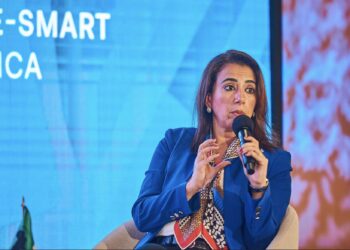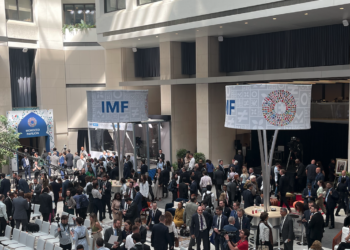Before the development of payment gateways, payment infrastructure, and even the cash-based system as we know it today, much of pre-colonial Africa used a barter system. With this barter system, people could trade goods and services rather than cash.
This system is still used in some parts of rural Africa, such as the Akpabuyo community in Cross River, Nigeria.
However, due to the double coincidence of wants, the barter system proved a hassle and was dropped for more sustainable payment methods such as cowry shells and precious metals.
When colonial powers began to settle in Africa in the 19th century, they brought along their monetary system and made their currencies the order of the day.
For example, in colonial Nigeria, shillings and pence became the legal tender in the region as prescribed by the colonial ordinance of 1880. This later evolved into the Naira as it is today.
Much of Africa has moved towards electronic payments, with countries like Nigeria, Kenya, and South Africa leading the way in digital payments.
One notable development that led to this was the increase in internet penetration in Africa. As of 2022 64% of urban dwellers used the internet. For context, in 2000, the percentage hovered around 1%.
A digital payment infrastructure and a gateway for consumers to access this infrastructure are needed to facilitate electronic payments.
In Nigeria, the very first digital payment infrastructure was Interswitch, which launched in 2002, then eTranzact in 2003, followed by the NIBSS Electronic Fund Transfer (NEFT) in 2004, which was backed by the Central Bank of Nigeria (CBN).
Due to backing from the CBN as the national central switch, the NEFT was available to all major financial services providers and quickly gained widespread adoption.
However, at the time, transactions were not cleared and settled in real-time time, not until 2011, when NIBSS launched NIBSS Instant Payment, that payments were electronically facilitated in real-time.
Since then, other companies like Zone have continuously innovated and improved the real-time settlement of transactions in Nigeria.
In Ghana, there was the incorporation of the Ghana Interbank Payment and Settlement Systems Limited (GhIPSS) by the Bank of Ghana.
The subsidiary aimed to implement and handle interoperable payment infrastructure in Ghana. The GhIPSS, with its clearing infrastructure known as Cheque Codeline Clearing, led to a decrease in transaction time.
It equalized Ghana’s nationwide checking cycle, bringing it down from 3-10 days to 24 hours. This timeline was later cut to just 15 minutes with the introduction of the Automated Clearing House (ACH) services offered to banks on the GhIPSS clearing infrastructure.
Additionally, in an attempt to interconnect financial institutions and third-party payment service providers, GhIPSS launched gh-link in 2012, Ghana’s interbank switching and processing system.
With the gh-link infrastructure, GhIPSS was able to build its real-time payment service known as GhIPSS Instant Pay (GIP).
The platform facilitates real-time, low-cost interbank transactions. In 2021, GIP processed 38 million transactions worth approximately $3.97 billion.
Players in the Payment Ecosystem
In the beginning, when e-commerce in Africa was starting to find its way, most business owners and merchants had to use international payment gateways like PayPal to receive payments.
However, as digital payments grew, there was a need to provide solutions to Africa’s unique challenges. Since then, fintechs such as Paystack and Flutterwave have found solutions and created payment gateway platforms that account for the uniqueness of the African market.
Today, Paystack has found a way to connect Africa’s fragmented payment ecosystem through its APIs. With Paystack, merchants can receive payments from different parts of the continent from customers using various payment methods (credit cards, debit cards, mobile money transfers, and so on). In the middle of 2017, Paystack was processing monthly transactions of over 1 billion Naira. By 2018, the number had grown to ₦10 billion monthly.
According to McKinsey & Company, revenues from the African electronic payments market are expected to grow by 152% between 2020 and 2025, generating $40 billion in 2025.
This growth has led to the number of fintech startups on the continent reaching 576 in 2021, a 17.3% growth rate from 2019. These banks, fintechs, and other financial institutions need a bridge to connect them.
Interswitch, a Nigerian payment infrastructure company, was one of the first players to do this. Interswitch is one of the early players—founded in 2002— in the fintech infrastructure space and has, over the years, built payment infrastructure for other fintechs to leverage.
According to the CEO of Interswitch, Muyiwa Asagba, the company has built over 20 APIs for financial services.
However, as one of the earlier payment infrastructure offerings that banks leveraged to introduce and grow their digital banking operations, Interswitch’s infrastructure and those developed around the same time might not be able to keep up with the current demands of financial service providers.
The financial landscape of the early 2000s and the current landscape differ in many ways, and innovation is needed in that space.
What do payment gateways and infrastructure mean?
The terms “payments infrastructure” and “payment gateway,” which mean different things, have often been used interchangeably.
The confusion might stem from some companies, like Flutterwave and Paystack, having payment infrastructure and payment gateway capabilities.
To qualify as a payment infrastructure in Nigeria, a company needs to obtain a switching license from the CBN and establish direct connections to Banks and other financial institutions.
Payment gateways, on the other hand, interface with merchants to accept payment requests and then leverage payment infrastructure providers to process such payments.
While traditional payment gateways like Paystack and Flutterwave now have switching licenses, their infrastructure is closed, as they only leverage it to provide cheaper payment processing for their payment gateway clients.
While payment infrastructure and gateway services are essential to the financial services ecosystem, they perform different functions.
Payment infrastructure can be viewed through two different lenses. First, it can be viewed as an “ecosystem” and a “technology.”
As an ecosystem, payment infrastructure refers to the institutions, people, sets of instruments, rules, procedures, standards, and computer networks that make monetary transactions possible.
It serves as the rails and tools enabling value to flow seamlessly through the financial ecosystem. For this article, we shall focus on the technology aspect.
As a technology, it is a processing platform that connects financial service providers and facilitates transactions between them.
Payment infrastructure companies work behind the scenes to ensure that transactions are processed seamlessly and swiftly.
Without them, payment gateway platforms and other financial institutions will not have a reliable network to work with and will find it challenging to navigate the payment landscape.
These companies process complex payments, prevent fraud, and provide scalability and reliability. You can think of it as a bridge that connects all the participants, such as payment gateways and banks, in a financial ecosystem through channels like ATMs, apps, POS devices, and USSD transactions.
Payment gateways are processors that authenticate and securely process their customers’ transactions. They capture, store, and send customer details from the point of transaction through a payment infrastructure to the destination.
They do this because they typically do not have the technology and integrations required to process transactions independently and so would need payment infrastructure providers to help process transactions originated by merchants and customers.
You can think of payment initiating and receiving platforms as roads linked to a bridge, and your transaction is a car that starts on one road and drives through a bridge to another road.
These roads sometimes have a difficult time connecting. These difficulties can arise because the bridge can impose a high toll fee.
In other instances, the bridge might be inaccessible for cars to pass through because of congestion. Another problem can be that the bridge was not built to accommodate certain types of cars or roads.
Decentralized Payment Architecture
The evolution of payment infrastructures has seen the emergence of decentralized networks based on blockchain technology.
These systems can potentially revolutionize transaction processing by eliminating the need for an intermediary and significantly reducing transaction costs and reconciliation issues.
Transactions are sent directly to the recipient bank, leading to a more reliable network that offers heightened security and minimal downtime.
In essence, the architecture of decentralized payment infrastructure is inherently flexible and scalable, making them unlikely to become obsolete even as technology advances.
To illustrate, let’s consider the example of Zone. Previously known as Appzone Group, Zone rebranded itself as a key player in decentralized payment networks in 2022.
It became Africa’s first regulated blockchain network for payments, receiving a switching and processing license from the Central Bank of Nigeria.
By adopting a decentralized model, Zone offers key benefits to its users, such as banks, fintechs, and OFIs, by allowing them to connect directly without relying on a central intermediary.
This mitigates the risk of total network downtime that could arise from a single point of failure, a common issue encountered by traditional financial service providers.
Zone’s blockchain infrastructure offers enhanced security to payment gateways through its decentralized and tamper-proof ledger.
It ensures that captured client data is stored and shared securely, minimizing fraud risks, unauthorized access, and data breaches. This level of security and trust is unmatched by most conventional systems.
At its core, Zone is striving to overcome the challenges faced by Africa’s existing digital payment infrastructure. With the launch of a decentralized payment infrastructure, the first of its kind on the continent, Zone enables both domestic payments within Nigeria and intra-African payments in fiat and digital currencies.
Zone’s CEO, Obi Emetarom, has highlighted the company’s ongoing work on a regulated and regional digital currency (a stablecoin).
This innovation, accepted by different financial institutions and approved by regulators, will facilitate real-time cross-border settlements in Africa, marking another step toward the digital payment revolution.
Conclusion
Payment infrastructure offerings play a very critical role in the payment ecosystem. Without them, Merchant-facing payment processors like Flutterwave and Paystack could not exist.
Although they are often relegated to the background, they serve as the foundation of the digital payments ecosystem.
Interswitch, for instance, became a big player in the payment infrastructure space by facilitating payments made through credit cards, debit cards, and mobile bank transfers.
Another significant payment infrastructure is the National Inter-Bank Settlement System (NIBSS). NIBSS operates the NIBSS Instant Payment (NIP)—a real-time payment infrastructure launched in 2012— to allow Nigerians to make real-time payments across financial institutions by simply inputting the recipient’s transaction amount and account details.
The NIP system permits direct participation from banks and mobile money providers. In 2022, NIBSS had a transaction volume of 5.2 billion transactions with a transaction value of ₦387.1 trillion.
NIP uses centralized infrastructure, which experienced major challenges during the first quarter of 2023 when there was a severe scarcity of physical currency notes caused by the government’s attempt to transition to a new design of notes within a very short time frame.
During that period, the scarcity of physical notes inadvertently accelerated Nigerians’ adoption of newer digital means of payment.
The unexpected exodus to digital payments— digital transactions soared by 215% year-on-year in March 2023— exposed the limitations of existing payment infrastructure and demonstrated the fact that they could not keep up with demand.
Experts believe that deced infrastructure would have fared better since the burden of transaction processing is shared and borne by multiple systems as opposed to the case with existing infrastructure, where all processing is handled by a single system.
























